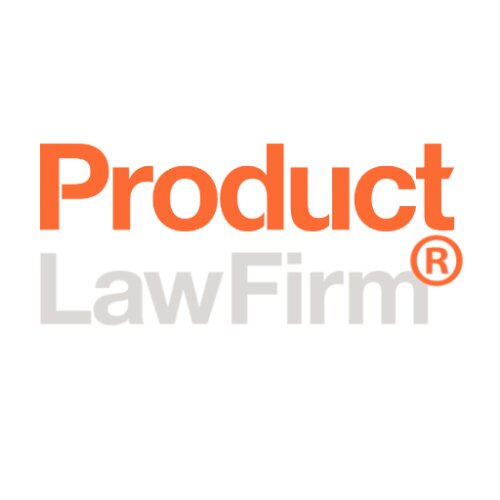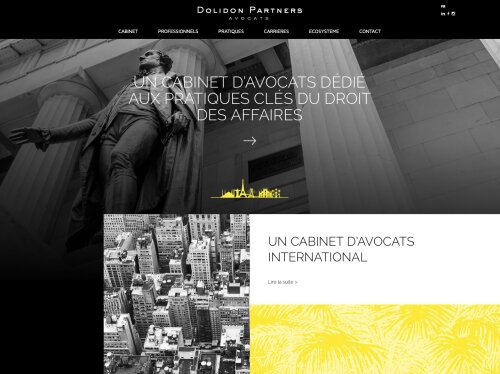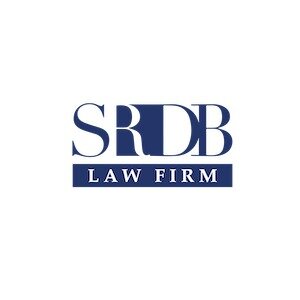Best Renewable & Alternative Energy Lawyers in Paris
Share your needs with us, get contacted by law firms.
Free. Takes 2 min.
List of the best lawyers in Paris, France
About Renewable & Alternative Energy Law in Paris, France
Renewable and alternative energy law in Paris, France governs the development, production, distribution, and use of energy resources that do not rely on conventional fossil fuels. This field covers solar, wind, biomass, hydropower, geothermal, and innovative alternative technologies. Due to France’s climate action goals and commitments under the Paris Agreement, the city and country are actively supporting cleaner energy sources. The legal framework integrates European Union directives, national law, and specific regional initiatives that aim to reduce greenhouse gas emissions, enhance energy efficiency, and support the growth of environmentally sustainable technologies.
Why You May Need a Lawyer
There are several situations where legal guidance in renewable and alternative energy may be essential. Individuals and businesses frequently seek advice for project development and permitting, negotiating power purchase agreements, navigating environmental regulations, securing government subsidies or incentives, and managing issues related to intellectual property or competition law. Legal support may also become necessary in case of disputes with contractors, grid operators, or regulatory authorities. Whether you are investing in a new installation, launching an innovative technology, or ensuring compliance with complex regulations, having a lawyer experienced in renewable and alternative energy law can protect your rights and help your project succeed.
Local Laws Overview
In Paris and throughout France, renewable and alternative energy is regulated by national and European legislation, interpreted and enforced at local and regional levels. The French Energy Code outlines much of the regulatory environment, including support mechanisms for renewables and conditions for grid access. The Multiannual Energy Programming (Programmation pluriannuelle de l'énergie - PPE) sets targets for the share of renewables within France’s overall energy mix. The law also establishes procedures for environmental impact assessments, building permits, and public consultation requirements. Furthermore, with the City of Paris’s own Climate Action Plan, there are local priorities and additional initiatives to encourage rooftop solar, urban wind projects, green mobility infrastructure, and energy efficiency improvements in buildings.
Frequently Asked Questions
What are the main types of renewable energy used in Paris?
Paris primarily relies on solar power, wind energy, biomass, geothermal energy, and some hydropower. Solar installations are increasingly common on public buildings, residential rooftops, and commercial properties.
Are there government incentives for renewable energy projects in Paris?
Yes, both the French government and the City of Paris offer financial incentives such as feed-in tariffs, tax credits, reduced VAT rates, and grants for renewable energy projects. These vary based on technology, project size, and current policy priorities.
What permits are required to install solar panels on my property?
Most solar installations require prior declaration to the local mairie (town hall) and may also need a building permit depending on the project’s size, location, and any protected status of the property. Compliance with urban planning rules is essential.
How does renewable energy legislation interact with European Union law?
France must meet targets and follow regulations established by the EU, particularly relating to renewable energy shares, emissions reductions, and market integration. National and local laws are adapted accordingly.
What is the role of electric grid operators in renewable energy projects?
Grid operators, such as Enedis for electricity distribution, oversee the technical connection of renewable installations to the grid. They ensure projects meet safety, technical, and regulatory standards necessary for operation.
Can I sell excess energy produced by my renewable installation?
Individual and business producers can sell surplus electricity back to the grid via power purchase agreements. The conditions and tariffs for these arrangements are regulated by law and may require a contract with the local utility or energy supplier.
What environmental assessments are required for renewable energy projects?
Most medium and large scale projects must undergo an environmental impact assessment as part of the permitting process, examining effects on landscape, biodiversity, noise, and community well-being.
Are there restrictions on renewable energy installations in historic areas?
Yes, installations in protected historic zones are subject to additional scrutiny and may require approval from architectural or heritage authorities. The visual impact, materials, and integration with existing structures are key considerations.
What legal risks do renewable energy projects face?
Potential legal risks include disputes over land use, contract breaches, regulatory non-compliance, delays in permitting, changes in government policy, and competition or antitrust issues. Sound legal advice can help mitigate these risks.
Where can I get help if my project faces opposition from neighbors or local authorities?
Disputes can often be resolved through mediation or negotiation, but sometimes legal proceedings are necessary. A lawyer specializing in renewable energy law can advise you on your rights and the best steps to take.
Additional Resources
For further information and assistance, you may consult the following agencies and organizations in France:
- Ministry for the Ecological Transition (Ministère de la Transition écologique) - Responsible for national energy and climate policy
- Agence de l’Environnement et de la Maîtrise de l’Énergie (ADEME) - Provides guidance, financial support, and project information
- Enedis - Grid operator for electricity
- Réseau de Transport d’Électricité (RTE) - Transmission system operator
- City of Paris Energy and Climate Division - Local incentives and requirements
- French Renewable Energy Syndicate (Syndicat des énergies renouvelables) - Industry advocacy
- Paris Bar Association - Directory for finding specialized lawyers
Next Steps
If you are considering a renewable or alternative energy project or you are dealing with legal challenges in this field, it is recommended to:
- Gather all relevant documentation about your project or legal issue
- Understand the basic regulatory requirements that may apply to your situation
- Consult with a qualified lawyer or legal expert specializing in renewable and alternative energy law in Paris
- Contact local government offices or relevant agencies for guidance on permits, incentives, and compliance
- Remain informed about new legislative developments that could affect your rights or obligations
Early legal advice can help you navigate complex regulations, avoid costly mistakes, and maximize your project’s success. Do not hesitate to seek professional support tailored to your specific needs and goals.
Lawzana helps you find the best lawyers and law firms in Paris through a curated and pre-screened list of qualified legal professionals. Our platform offers rankings and detailed profiles of attorneys and law firms, allowing you to compare based on practice areas, including Renewable & Alternative Energy, experience, and client feedback.
Each profile includes a description of the firm's areas of practice, client reviews, team members and partners, year of establishment, spoken languages, office locations, contact information, social media presence, and any published articles or resources. Most firms on our platform speak English and are experienced in both local and international legal matters.
Get a quote from top-rated law firms in Paris, France — quickly, securely, and without unnecessary hassle.
Disclaimer:
The information provided on this page is for general informational purposes only and does not constitute legal advice. While we strive to ensure the accuracy and relevance of the content, legal information may change over time, and interpretations of the law can vary. You should always consult with a qualified legal professional for advice specific to your situation.
We disclaim all liability for actions taken or not taken based on the content of this page. If you believe any information is incorrect or outdated, please contact us, and we will review and update it where appropriate.















